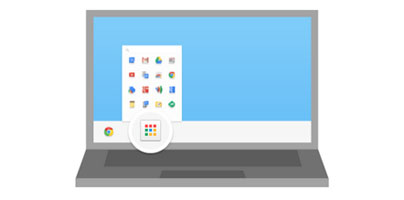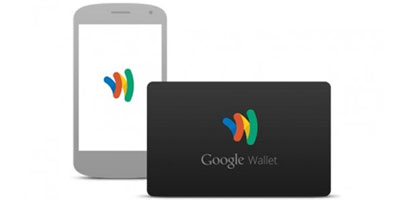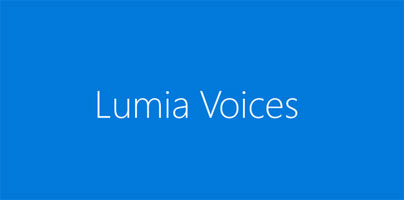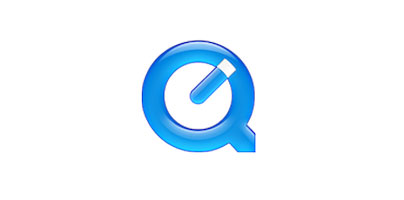It’s never good news to find out that the software application, mobile app, useful service or handy tech product you’ve grown to love is getting discontinued, retired, or shut down. Sadly though, it is a fact of life.
That is the case with the products that are listed below. They’re a thing of the past, either because they’ve already been discontinued or because they will be discontinued soon.
1. Chrome App Launcher for Windows, Mac and Linux

Back in September 2013, Google introduced the Chrome App Launcher, touting the fact that it lets you access your favorite apps quicker and easier. The Chrome App Launcher stayed in the taskbar, allowing you to easily find and launch apps outside of Chrome, into their own windows.
The thing is that most Chrome users preferred to launch apps from within Chrome and not from the Chrome App Launcher. Since few people used the Launcher, Google decided to retire it. On March 22, 2016, Google announced that it is retiring the Chrome App Launcher and that the “removal process will take place over the next several months.”
“Chrome will no longer enable the launcher when users first install a Chrome app,” said Marc Pawliger, Engineering Director on the Chromium Team. “Anyone who currently has the launcher will receive a notice informing them that the launcher will be going away. In July, existing instances of the launcher will be removed.”
The Chrome App Launcher continues to live on Chrome OS. It remains unchanged on Chrome OS.
2. Wallet Card, Google’s physical card

Alongside the Google Wallet payments service, Google offered an actual, physical Wallet Card. But come June 30, the Wallet Card will no longer be supported. According to Google, you can still use your Wallet Balance to send and receive money, transfer money to your bank account, and make purchases on Google Play.
Google did not say why it is terminating the physical card. I know from experience that Google discontinues products when they fail to gain traction. So I think it’s safe to assume that the Wallet Card did not live up to Google’s expectations and consequently, Google decided to discontinue it.
3. Microsoft’s Lumia Voices program

Microsoft shut down the Lumia Voices program on April 12, 2016. Previously known as Microsoft Connects and Nokia Connects before that, Lumia Voices gave insight on why people loved their Lumias, how they used them in their everyday lives, and how they could get to test the latest Lumia devices.
4. Nest's Revolv smart home hub

Nest will drop support for Revolv, on May 15, 2106. This means that the Revolv service will no longer work, the Revolv app will no longer open the smart home hub, and all Revolv data will be deleted.
“We’re pouring all our energy into Works with Nest and are incredibly excited about what we’re making,” said Nest. Unfortunately, that means we can’t allocate resources to Revolv anymore and we have to shut down the service. As of May 15, 2016, your Revolv hub and app will no longer work.”
5. Apple’s iTunes Allowances program

Apple is putting an end to iTunes Allowances in two stages. Starting April 13, 2016, you won’t be able to create new iTunes Allowances. And come May 25, 2016, all existing iTunes Allowances will be canceled. Unused allowance credit will remain in the recipient’s account until it is used.
iTunes Allowances worked like this: set one up for your son or daughter and each month, your kid would get a fixed amount of money that could be spent on music, books, apps, and so on. If your child did not spend the allotted amount, it would get rolled over to the following month.
6. QuickTime for Windows

Apple decided to deprecate the Windows version of its QuickTime media player. QuickTime for Windows is no longer supported, meaning that Apple will not release any more security updates for QuickTime. So if there are any security holes in QuickTime, they will not be plugged.
Speaking of which, Trend Micro and US-Cert have announced that there are critical vulnerabilities in QuickTime for Windows that could allow remote attackers to take control of affected systems. Since QuickTime is no longer supported, the only thing you can do to stay safe is to uninstall QuickTime from your Windows PC. You can do that the standard way, or you could use some specialized tools.
That is the case with the products that are listed below. They’re a thing of the past, either because they’ve already been discontinued or because they will be discontinued soon.
1. Chrome App Launcher for Windows, Mac and Linux

Back in September 2013, Google introduced the Chrome App Launcher, touting the fact that it lets you access your favorite apps quicker and easier. The Chrome App Launcher stayed in the taskbar, allowing you to easily find and launch apps outside of Chrome, into their own windows.
The thing is that most Chrome users preferred to launch apps from within Chrome and not from the Chrome App Launcher. Since few people used the Launcher, Google decided to retire it. On March 22, 2016, Google announced that it is retiring the Chrome App Launcher and that the “removal process will take place over the next several months.”
“Chrome will no longer enable the launcher when users first install a Chrome app,” said Marc Pawliger, Engineering Director on the Chromium Team. “Anyone who currently has the launcher will receive a notice informing them that the launcher will be going away. In July, existing instances of the launcher will be removed.”
The Chrome App Launcher continues to live on Chrome OS. It remains unchanged on Chrome OS.
2. Wallet Card, Google’s physical card

Alongside the Google Wallet payments service, Google offered an actual, physical Wallet Card. But come June 30, the Wallet Card will no longer be supported. According to Google, you can still use your Wallet Balance to send and receive money, transfer money to your bank account, and make purchases on Google Play.
Google did not say why it is terminating the physical card. I know from experience that Google discontinues products when they fail to gain traction. So I think it’s safe to assume that the Wallet Card did not live up to Google’s expectations and consequently, Google decided to discontinue it.
3. Microsoft’s Lumia Voices program

Microsoft shut down the Lumia Voices program on April 12, 2016. Previously known as Microsoft Connects and Nokia Connects before that, Lumia Voices gave insight on why people loved their Lumias, how they used them in their everyday lives, and how they could get to test the latest Lumia devices.
4. Nest's Revolv smart home hub

Nest will drop support for Revolv, on May 15, 2106. This means that the Revolv service will no longer work, the Revolv app will no longer open the smart home hub, and all Revolv data will be deleted.
“We’re pouring all our energy into Works with Nest and are incredibly excited about what we’re making,” said Nest. Unfortunately, that means we can’t allocate resources to Revolv anymore and we have to shut down the service. As of May 15, 2016, your Revolv hub and app will no longer work.”
5. Apple’s iTunes Allowances program

Apple is putting an end to iTunes Allowances in two stages. Starting April 13, 2016, you won’t be able to create new iTunes Allowances. And come May 25, 2016, all existing iTunes Allowances will be canceled. Unused allowance credit will remain in the recipient’s account until it is used.
iTunes Allowances worked like this: set one up for your son or daughter and each month, your kid would get a fixed amount of money that could be spent on music, books, apps, and so on. If your child did not spend the allotted amount, it would get rolled over to the following month.
6. QuickTime for Windows

Apple decided to deprecate the Windows version of its QuickTime media player. QuickTime for Windows is no longer supported, meaning that Apple will not release any more security updates for QuickTime. So if there are any security holes in QuickTime, they will not be plugged.
Speaking of which, Trend Micro and US-Cert have announced that there are critical vulnerabilities in QuickTime for Windows that could allow remote attackers to take control of affected systems. Since QuickTime is no longer supported, the only thing you can do to stay safe is to uninstall QuickTime from your Windows PC. You can do that the standard way, or you could use some specialized tools.

























